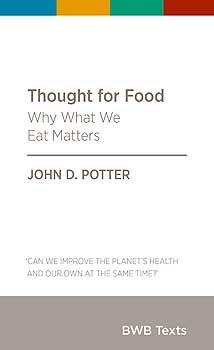
Professor John D Potter's latest book examines the latest evidence on what causes cancer, other chronic diseases and obesity.
Fad diets and advice about health dominate the headlines. Our society has never been more saturated by information about healthy living, but our obesity rate continues to rise – in New Zealand today, more than half of the population is overweight or obese.
When it comes to health, it can be difficult to know who to believe. The internet is filled with contradictory diet advice – should we be eating high fat or low fat? Avoiding grains, or consuming plenty? And what about dairy?
Now, a book from one of New Zealand’s leading health researchers, published by Bridget Williams Books as part of the BWB Texts series, provides an authoritative and scientific perspective on the subject of food and health. Professor John D Potter’s Thought for Food examines the latest evidence on what causes cancer, other chronic diseases and obesity. What is the current understanding of the balance between diet, genes and plain bad luck, and how is the balance shifting? It explains how what we eat can increase or reduce our chances of disease – that what we eat does, in fact, matter.
Professor Potter is an award-winning health researcher. Currently a Professor at Massey University’s Centre for Public Health Research, he is also an Adjunct Professor at the University of Canterbury, a Senior Advisor at the Fred Hutchinson Cancer Research Center and a Professor Emeritus of Epidemiology at the University of Washington. He has won numerous international awards for his research on cancer and nutrition, including the US National Cancer Institute Annual Advances in Cancer Prevention Award in 2005 and the 2012 Medal of Honour of the International Agency for Research on Cancer.
Thought for Food argues that humans are adapted to a particular diet: not the high-fat, high-meat ‘Palaeolithic’ fad diet, but the diet of early humans when they obtained their food by gathering, hunting and fishing. This diet was dominated by vegetables, fruits, roots, seeds and for coastal dwellers seafood, supplemented by small quantities of lean meat, eggs and insects. Professor Potter says when our diet shifts far from this original diet – particularly into a diet dominated by sugar, saturated fat and alcohol – we increase our risk of disease.
Professor Potter acknowledges that humans couldn’t go back to their original eating habits – and that few would want to. He does however, suggest some simple and practical ways to shift our diet closer towards the original human diet, without sacrificing the convenience and variety to which we have become accustomed. Upping our vegetable intake, experimenting with new ingredients and cuisines, and eating more vegetarian meals are all simple ways to improve our health.
Our current diets aren’t just harming the health of individuals, Professor Potter explains, but they are also devastating the environment. The intensive and industrialised agriculture used to produce much of what we eat causes myriad harms – massive greenhouse gas emissions, rainforest clearing and species extinctions, to name just a few. By changing how we eat, Professor Potter argues, we could not only improve our own health, but that of the planet too.
Thought for Food: Why What We Eat Matters
Published by Bridget Williams Books
RRP $14.99 print, $4.99 ebook

Thought for Food cover.
About the Author
John D Potter is Professor at Massey University’s Centre for Public Health Research, Wellington; Adjunct Professor at University of Canterbury, Christchurch; Senior Advisor, Fred Hutchinson Cancer Research Center; Professor Emeritus of Epidemiology at the University of Washington; and Chief Science Advisor, Ministry of Health. Potter has had an outstanding international research career focusing on nutrition, other environmental and host factors, and genetics in the aetiology and pathobiology of cancer and other chronic diseases. This has broadened to ‘planetary overload’, especially in relation to diet and environmental degradation.
Professor Potter chaired the international panel that produced Food, Nutrition, and the Prevention of Cancer: A Global Perspective (1997). Recent visiting appointments have included the Cambridge Research Institute, University of Cambridge and the International Agency for Research on Cancer, Lyon. He is founding co-chair of the Asia Cohort Consortium, a collaborative cohort study across Asia of 1.1 million people. He has won many international awards and has authored or co-authored more than 690 scientific papers, chapters, and books.